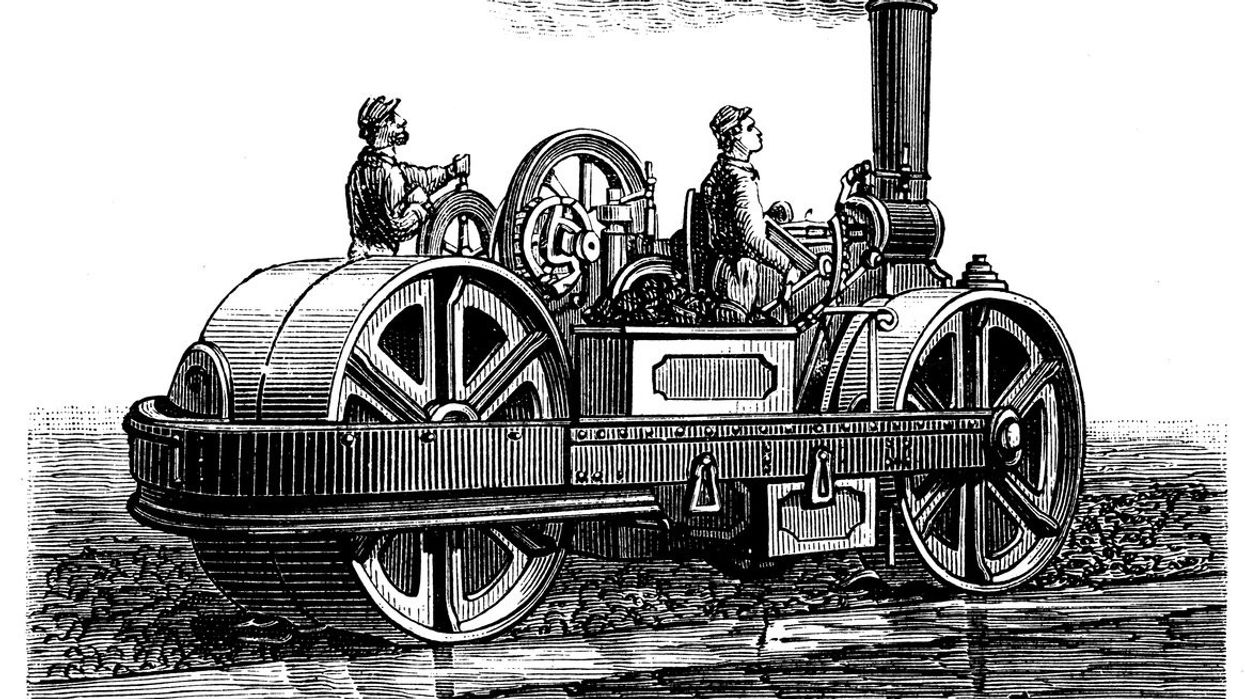A colonial-era steamroller that gathered dust for decades on the premises of a government building cluster in the eastern Indian city of Patna will be preserved as an artefact.
The John Fowler & Co engine was among several steamrollers brought to India from Leeds to level thousands of miles of roads. Believed to belong to the 1920s, it was rusting at the historic Patna Collectorate which has now been partially demolished after years of legal hurdles.
The roller was among several vintage artefacts - including old safety vaults, clocks and furniture, hanging skylights and a printing machine - lay at the two-storey structures built by the Dutch East India Company in the 1860s.
But they faced uncertainty as the Bihar state administration decided to pull down the buildings amid legal challenges mounted by vintage lovers, historians and the Netherlands government. As the Indian Supreme Court cleared the way for their demolition, local officials agreed to rescue the steamroller and display it with other historic objects in the Patna Museum. The promise followed vintage enthusiasts’ campaign to preserve colonial-era legacies.
“The old road roller is a very unique heritage as it was powered by steam and used for making roads by the district board. It has to be saved for the current generation and the coming generations,” an official said.
According to an estimate by the Heritage Transport Museum, there are 34 such engines across India including another one displayed outside the Salem City Corporation office in south India.
The UK’s Road Roller Association vice-chairman Derek Rayner said India was the first country in the world to use a steamroller for making roads in 1863.
“This is India’s forgotten heritage. There are probably many more in other locations that have not been recorded. They need to be found, identified and moved to appropriate locations where their importance in creating the road network of India today can be suitably recognised,” the steamroller enthusiast told The Times.
Colonial-era steamroller set to find place in Indian museum
It lay rusting on the premises of a structure built by the Dutch East India Company in Patna in the 1860s




